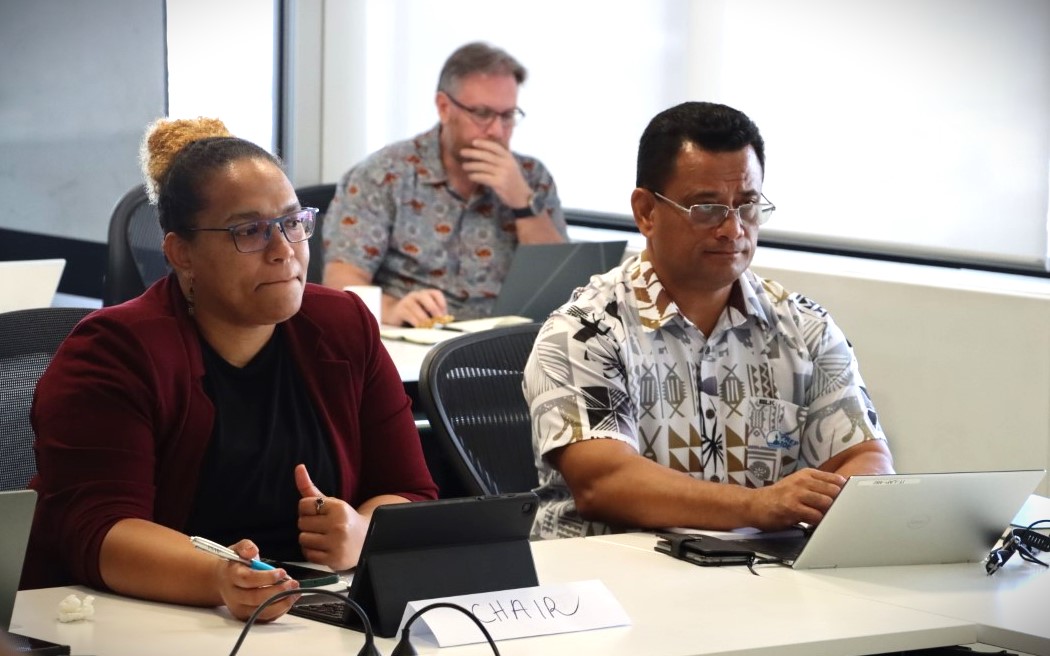Fourteen Pacific countries have taken a step closer to finalise their preparations, with a common understanding of key issues, for the next round of the Intergovernmental Negotiating Committee to develop an international legally binding instrument on plastic pollution, including in the marine environment (INC-4) in Canada.
It follows the four-day Pacific Regional Preparatory Workshop held at the Auckland Office of the New Zealand Ministry of Foreign Affairs and Trade from 12-15 February.
The workshop kicked off last Monday with the ‘Empowering our Pacific Voice as Negotiators’ training and concluded with a Pacific Small Island Developing States (PSIDS) closed session chaired by the new PSIDS Chair, Vanuatu.
“The discussions this week has been extremely useful as it gave us the ability as the PSIDS group to identify areas that we still needed further clarifications on from our technical advisors from SPREP, OPOC and other technical partners, so that moving towards INC-4, we can better coordinate and strategise as a group on our positions as we believe that a unified voice will bring more impact during the negotiations in INC-4,” said Majorie Wells, the representative of the PSIDS Chair.
“I think we have a common understanding of the issues we are up against and our positions in a number of agenda items we have looked at. That said, we do have a lot of work in front of us leading to INC-4. I trust our member states will do our very best to prepare for the negotiations as we work to ensure a Cleaner Pacific.”
The meeting was attended by the Cook Islands, Federated States of Micronesia, Fiji, Kiribati, Marshall Islands, Nauru, Niue, Palau, Papua New Guinea, Samoa, Solomon Islands, Tonga and Vanuatu.
At the beginning of the session, Pacific countries were reminded that the plastic pollution crisis continues to impact livelihoods, social and economic growth for Pacific countries. Ms Wells said this is why the work to strengthen a unified Pacific voice on the global stage, calling for a global agreement to address plastic pollution covering the whole of life cycle of plastics, is so important.
“We have continuously contributed immensely towards the negotiations by expressing our positions as a group, community and individual states,” said Wells.
“Let us be reminded of the saying, the “Ocean takes care of its own”. So as the custodians of the Pacific Ocean, let’s collaborate to encourage responsible stewardship over our life sustaining ecosystems. This will ensure that our unified Pacific voice is heard and reflected without contradictions during INC-4.”
SPREP’s Director of Waste Management and Pollution Control, Anthony Talouli, acknowledged the work of all Pacific countries during the meeting.
“As people of the Pacific, we do not need a reminder about why the work we do matters to our communities and people. Plastic pollution has already impacted us on different levels and it is from that reality we are here to do the best we can to protect and safeguard our ocean, environment and our people,” said Talouli.
“I want to thank all member countries for being part of this meeting and for all the work put in this week. I also want to acknowledge the Government of Australia and the Government of New Zealand for their support which has made it possible for us to discuss some of the key issues in relation to the plastics treaty. I know the road ahead is not going to be easy but we are all unified in our common goal to ensure our people are safeguarded and protected from the threat of plastic pollution.”
The fourth session of the Intergovernmental Negotiating Committee to develop an international legally binding instrument on plastic pollution, including in the marine environment (INC-4), is scheduled to take place from 23 -29 April 2024 at the Shaw Center in Ottawa, Canada. The session will be preceded by regional consultations on 21 April 2024.
SOURCE: SPREP/PACNEWS














